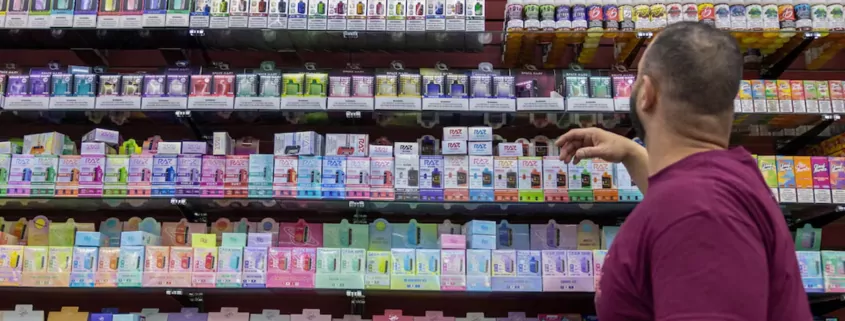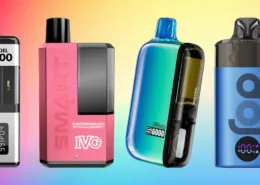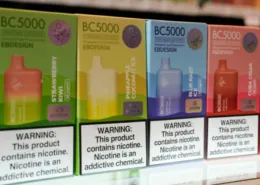Supreme Court Backs FDA’s Denial of Flavored Vape Applications
On Wednesday(April 03/2025), the U.S. Supreme Court largely supported the Food and Drug Administration’s (FDA) decision to deny two e-cigarette companies, Triton Distribution and Vapetasia, the right to sell flavored vape products that regulators consider a health risk to youth. The unanimous ruling, authored by Justice Samuel Alito, overturned a lower court’s decision that the FDA had failed to follow proper legal procedures under the Administrative Procedure Act when rejecting the companies’ applications.
The e-cigarette companies had argued that the FDA improperly assessed their applications under a regulatory standard that differed from published guidance the companies had relied upon. While Alito acknowledged that affected parties may have believed the agency would apply a less demanding standard of proof, he ultimately concluded that the FDA had not improperly changed its position on scientific evidence and certain other guidelines.
However, the court left unresolved the question of how harmful it was to the companies that the FDA failed to consider their proposed plans to restrict underage access and use of their products. The lower court was ordered to reassess this issue under a different legal standard.
The Campaign for Tobacco-Free Kids praised the Supreme Court’s ruling, calling it a “major victory for the health of America’s kids and efforts to protect them from the flavored e-cigarettes that have fueled a youth nicotine addiction crisis.”
Under a 2016 FDA rule, e-cigarettes are subject to agency review as tobacco products, requiring manufacturers to apply for authorization to sell nicotine vaping devices and e-liquids. The agency has approved only 34 flavored e-cigarette varieties, all tobacco or menthol flavored, but maintains that it has not categorically banned flavored e-cigarette products.
Triton Distribution and Vapetasia filed FDA applications in 2020 for products with flavors such as sour grape, pink lemonade, and crème brulee, and names like “Jimmy The Juice Man Peachy Strawberry” and “Suicide Bunny Mother’s Milk and Cookies” – offerings that critics say were designed to appeal to minors. The FDA denied these applications, along with hundreds of others involving more than a million flavored vape products.
During arguments in the case, a Justice Department lawyer representing the FDA said the companies knew throughout the application process that the agency was concerned about flavors being attractive to youth and the addictive nature of nicotine, which is dangerous to developing brains.
The FDA found that in 2020, nearly one in five high school students and almost one in 20 middle school students used e-cigarettes, making them the most widely used tobacco product among youth by far.
While the Supreme Court’s decision is a victory for the FDA’s efforts to regulate flavored vape products, the issue of how to balance potential harm reduction for adult smokers with protecting youth from nicotine addiction remains a complex challenge for regulators and public health officials.
- Russia’s Vape Market: Inside the Battle for Control - August 8, 2025
- Brazil: Paraná Bill to Add Vaping to “No Smoking” Signs - August 8, 2025
- Celebrate with EightVape: 10 Lucky Winners Get Free Orders or $100 Gift Cards - August 8, 2025








